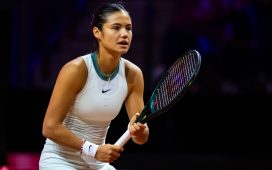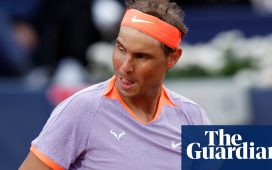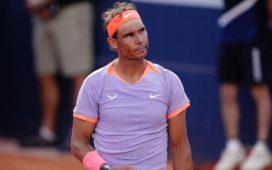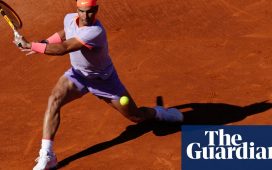Throughout the history of the Davis Cup, one of its defining features has been the pivotal role of doubles, particularly as modern players prioritise singles on the day-to-day grind of the tour. The shortened format of the Davis Cup has made doubles more pronounced and numerous ties in the past week have been settled by the strength of each team’s duos.
This is a welcome development for Great Britain who have produced numerous capable doubles players in recent years and welcomed one of the best doubles players in the world into their fold this year. With his regular tour partner, Rajeev Ram, Joe Salisbury has thrived. He won his second major at the US Open this year, rising to No 3.
He has been dominant in mixed doubles this year, too, winning the French Open and the US Open with Desirae Krawczyk. At 29, he is the youngest player in the ATP doubles top 20. There is much more to come.
After the disappointment of Salisbury and Neal Skupski losing Salisbury’s debut match in straight sets to France on Saturday, their thorough 6-4, 6-2 defeat of Jiri Vesely and Tomas Machac, of the Czech Republic, the following day should provide them with significant confidence for the challenges ahead.
That next challenge comes against Germany in Innsbruck on Tuesday, a rematch of the 2019 quarter-final when Kyle Edmund and Dan Evans beat Philipp Kohlschreiber and Jan-Lennard Struff respectively to send Great Britain through.
That encounter underlines the progress Great Britain has made. Evans has improved significantly but he is no longer the country’s No 1 since the arrival of Cameron Norrie. As Salisbury has risen to the top, the returning Skupski has firmly established himself in the top 20 after being ranked 31 in 2019.
Germany won both of their ties at the weekend to reach the quarter-final, including an excellent win over Novak Djokovic’s Serbia, but their progress since 2019 has been more modest. Dominik Koepfer, the world No 54, is an upgrade on the veteran Kohlschreiber. He is a durable left-hander with a sweet cross-court backhand and has played the best tennis of his life over the past 18 months.
However, Koepfer and Evans suffered frustrating defeats on Sunday toplayers outside the top 100 in Jurij Rodionov and Tomas Machac.
In the absence of Alexander Zverev, who is not interested in the revamped Davis Cup, 51st-ranked Struff remains Germany’s first singles player. His game is replete with weapons and he is more than capable of overpowering Norrie indoors, but Norrie’s consistency and his ability to neutralise Struff’s serve is more likely to wear him down.
Great Britain possesses the higher-ranked, more successful players and they are the favourites, but both teams will put forward top-50 calibre players.
The past week has shown how quickly a team can find themselves down a match and then fighting for their lives in the deciding doubles rubber. Should that be the case, Salisbury and Skupski will hope to take a further step forward as they face two formidable top 20 doubles players in Tim Puetz and Kevin Krawietz.
The reward for the winner will be a semi-final against either Russia, the tournament odds-on favourites, or Sweden, with the final two rounds held in Spain. Italy versus Croatia and Serbia versus Kazakhstan make up the bottom half.
Perhaps even more motivating for Great Britain and Germany is that after the silence of locked-down Austria, the winner will be able to see out their tournament, however it ends, in front of other human beings.








